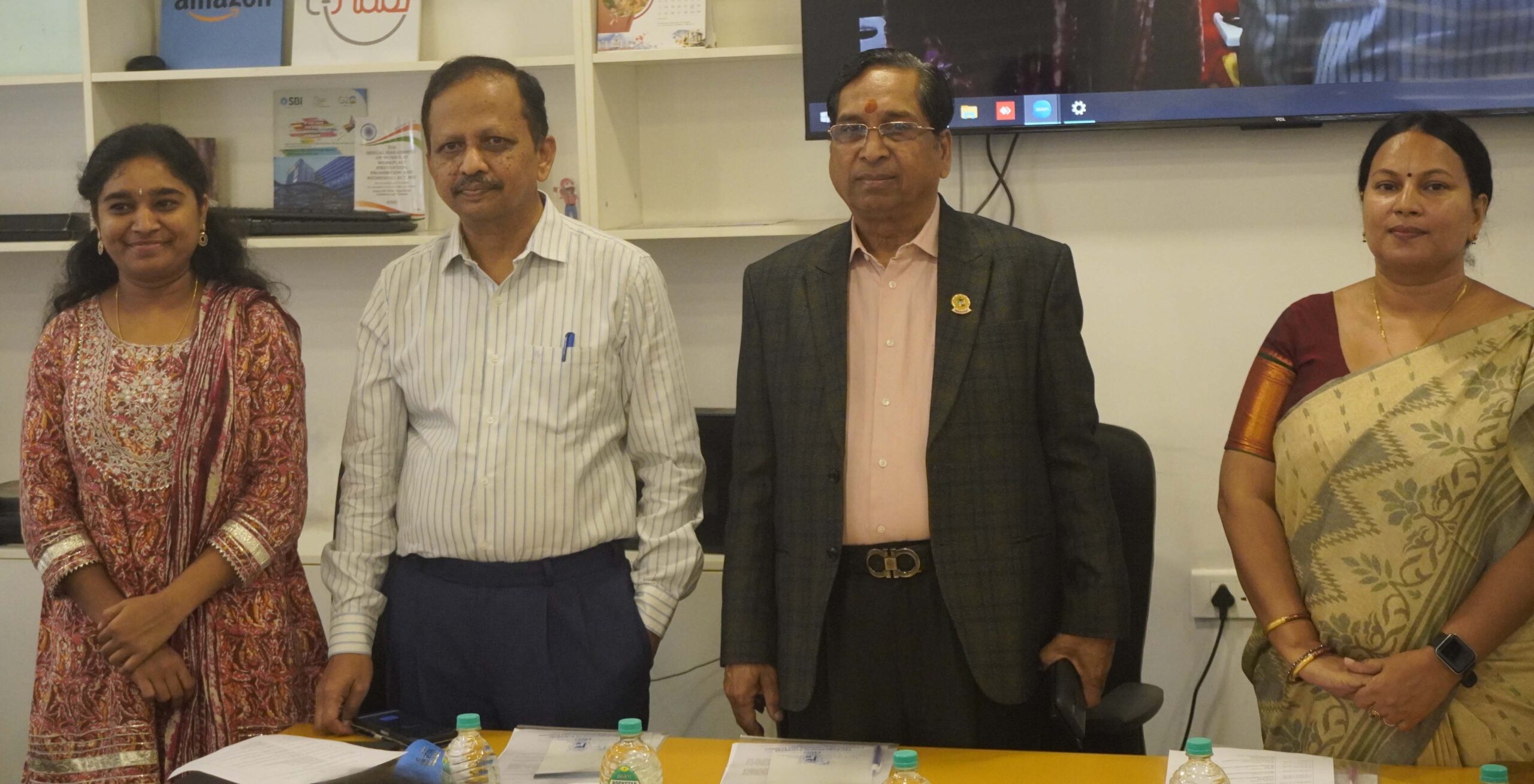FTCCI and Jeedimetla Effluent Treatment Limited hosted the program
NewsTeam12/8/2024
Hyderabad, December 09, 2024….. FTCCI with the support of Jeedimetla Effluent Treatment Limited organised a programme on Sustainable Procurement as per ISO 20400 at FTCCI Pokarna Skill Centre, Federation House, Red Hills Hyderabad.
Ms. Keerthi D Souza, Managing Director, Life Giver Professional Service LLP; Mr. G Bala Subramanyam, Chair, Environment Committee, FTCCI and Mr. P. Bakka Reddy, Executive Director, Jeedimetla Effluent Treatment Limited where the experts spoke on how organisations can integrate sustainability seamlessly into their procurement strategies.
The program aimed to equip the participants with insights into ISO 20400’s principles and their practical application. It helped them understand and explore how organisations can integrate sustainability seamlessly into their procurement strategies.

Mr. Suresh Kumar Singhal, President, FTCCI said in today’s world, sustainability is not just a buzzword; it is a necessity—a critical responsibility that businesses must embrace to thrive in a changing global landscape. Sustainable procurement, as guided by ISO 20400, offers a structured framework to ensure that our purchasing decisions respect financial priorities and environmental, social, and economic dimensions.
For businesses, adopting sustainable procurement is a game-changer. It strengthens supply chains, reduces risks, and enhances long-term profitability. For the environment, it helps conserve resources and mitigate climate change by encouraging greener practices across industries. And for society, it ensures fairness, equity, and respect for human rights throughout the value chain he added.
Let us not view sustainability as a challenge but as an opportunity—a chance to differentiate our businesses, to lead with a purpose, and to contribute to a better future for generations to come, Mr Singhal said. Together, let us lead the way in building a sustainable tomorrow, he told the participants.
Sustainable procurement is the process of integrating environmental, social, and governance (ESG) criteria into an organization's procurement processes, said Mr. G Bala Subramanyam.
Giving an example Bala Subrahmanyam said a paper straw can replace a plastic straw which takes 200 years to decompose.
The coffee cost is valued at Rs 15/ and above and may go even in hundreds in places like Star Bucks. That is what is known to us. But if you consider the water footprint, the cost could be Rs 700/- and above taking into consideration that it takes 140 litres (assuming the cost of each litre of water costs Rs 5/-) of water to make one cup of coffee, Bala Subrahmanyam revealed an eye-opening fact about coffee.
He added that sustainable procurement aims to Protect the environment, support social progress, promote economic development, Improve the quality of products and services, and Optimize costs.
Bala Subramanyam, the regulator turned academician, and industrial advisor, said ESG may become as important and vital as the FDA (Food and Drug Administration) in the future.
He gave examples of ESG reports of many companies such as Pfizer, Aurobindo, GSK, Piramal, Axis Bank and others. Pfizer in its ESG report disclosed that by the year 2040, it aims to achieve ‘Net Zero which is 10 years earlier than expected.
Net zero is a status where the balance between the amount of greenhouse gas (GHG) emitted and the amount that's removed from the atmosphere, Bala Subrahmanyam Explained.
About 50 participants from Middle and Senior Management roles of various corporate houses were the participants in the one-day program.
Sustainable procurement can help businesses: Contribute to sustainable development, reduce waste, increase compliance, and Improve transparency said Ms. Keerthi D Souza, Managing Director, Life Giver Professional Service LLP
It is the time when companies go further than reporting on only their economic bottom line of financial performance. In addition, the social and environmental impact should be part of their reporting to shareholders. It is often expressed in the 3Ps, People, Profit, and Planet she added.
Sustainable procurement is becoming embedded in day-to-day business operations and behaviours Ms Keerthi added
She gave an example of Indian Railways which is working to become more sustainable through several initiatives, unlike many government bodies. Some is their initiatives include Electrification. As of April, this year it has electrified more than 96% of its broad-gauge network.
The other sustainable initiatives of Indian Railways are Renewable energy; Energy efficiency; Waste management; Dedicated Freight Corridors; Green certifications and Carbon Saving Points. The railways’ goal is to achieve net zero carbon emissions by 2030., she said.